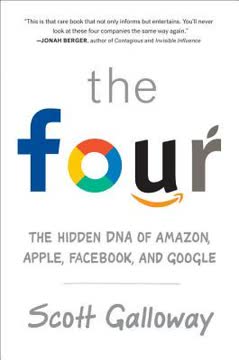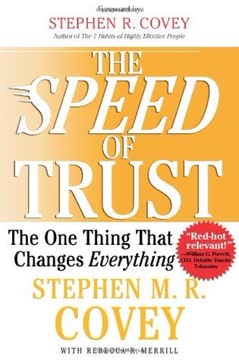Key Takeaways
1. Choose the Hard Path: Embrace Challenges for Growth
"I tell people all the time that I'm not afraid of aiming high and missing—I'm afraid of aiming low and hitting."
Embrace difficulty. Choosing the hard path in life leads to greater growth, learning, and success. This applies to both physical and mental challenges. By consistently pushing yourself beyond your comfort zone, you develop resilience, skills, and confidence that prepare you for future obstacles.
Seek out challenges. Look for opportunities that stretch your abilities and force you to learn new things. This could mean:
- Taking on a difficult work project
- Learning a new skill or language
- Pursuing advanced education
- Volunteering for leadership roles
- Tackling physical fitness goals
Remember that failure is often a necessary step towards success. The experience and lessons gained from attempting challenging tasks are valuable, even if you don't succeed initially.
2. Build Comfort with Discomfort: Control Emotions in Tough Situations
"We are who we are at our worst."
Develop emotional control. The ability to remain calm and focused in stressful situations is crucial for success in any field. This skill allows you to make better decisions and perform at your best when it matters most.
Techniques for building comfort with discomfort:
- Practice mindfulness and meditation
- Expose yourself to controlled stressful situations (e.g., public speaking, cold showers)
- Engage in physically demanding activities
- Reflect on past experiences where you overcame adversity
By regularly pushing your limits and practicing emotional control, you can train yourself to stay composed under pressure. This skill will serve you well in both personal and professional challenges.
3. Balance Confidence and Humility: Know Your Strengths and Limitations
"I walk into any room and always assume the people in it are smarter than I am, faster than I am, and more agile than I am. That way, I can never be wrong."
Cultivate self-awareness. Understanding your strengths and weaknesses allows you to approach situations with both confidence and humility. This balance enables you to contribute effectively while remaining open to learning from others.
Key aspects of balancing confidence and humility:
- Recognize and leverage your unique skills and experiences
- Acknowledge areas where you need improvement
- Seek feedback and input from others
- Be willing to admit mistakes and learn from them
- Appreciate the strengths and contributions of those around you
By maintaining this balance, you can build trust, foster collaboration, and continuously grow as an individual and leader.
4. Be a Leader and a Follower: Adapt Your Role as Needed
"You have to see yourself as a leader and as a follower, and critically, you have to know when to be which."
Practice dynamic subordination. The ability to seamlessly transition between leading and following is crucial for effective teamwork and organizational success. This flexibility allows you to contribute in the most valuable way possible in any given situation.
Key principles of dynamic subordination:
- Recognize when your skills are needed in a leadership role
- Step back and support others when their expertise is more relevant
- Focus on the team's success rather than personal glory
- Develop a range of skills to contribute in various capacities
- Communicate openly about roles and responsibilities
By mastering this skill, you can help create a more agile and effective team, capable of adapting to changing circumstances and challenges.
5. Develop a Strong Decision-Making Process: Focus on How to Think, Not What to Think
"Ultimately, the right process—one that allows you to plan and replan quickly and successfully—is what gives you the greatest chance for success."
Prioritize process over outcomes. A robust decision-making framework enables you to navigate complex situations and make sound choices, even when faced with uncertainty or incomplete information.
Key elements of an effective decision-making process:
- Gather diverse perspectives and inputs
- Identify and challenge assumptions
- Consider both short-term and long-term consequences
- Evaluate the quality of available information
- Remain flexible and willing to adjust as new data emerges
By focusing on developing strong critical thinking skills and decision-making processes, you'll be better equipped to handle a wide range of challenges throughout your career and life.
6. Empower Others: Give Away Authority to Gain It
"True leadership is realizing, as I've said before, that you don't need to make the best decision, you just need to ensure the best decision gets made."
Delegate and trust. Empowering others not only develops their skills and confidence but also allows you to focus on higher-level strategic thinking and leadership. By giving away authority, you actually increase your influence and effectiveness as a leader.
Strategies for empowering others:
- Provide clear objectives and expectations
- Offer support and resources without micromanaging
- Encourage initiative and creative problem-solving
- Recognize and celebrate successes
- Use failures as learning opportunities
Remember that empowering others doesn't mean abdicating responsibility. As a leader, you should still provide guidance, support, and accountability while allowing team members to take ownership of their work.
7. Find Meaning in Your Work: Align Your Actions with Your Values
"We can never be present enough, purposeful enough, and thoughtful enough as we approach each day."
Define your purpose. Identifying and pursuing work that aligns with your personal values and beliefs leads to greater fulfillment and motivation. This sense of purpose can help you persevere through challenges and make a more significant impact.
Steps to find meaning in your work:
- Reflect on your core values and beliefs
- Identify causes or issues that resonate with you
- Seek opportunities to apply your skills to meaningful projects
- Connect your daily tasks to larger, purposeful goals
- Regularly reassess and adjust your path as needed
By aligning your actions with your values, you'll find greater satisfaction in your work and be more likely to make a lasting positive impact on the world around you.
8. Cultivate Strong Relationships: Be Intrusive and Action-Oriented
"Real networking comes from investing energy in other people, giving more than taking, without thinking about whether you'll ever get paid back."
Prioritize genuine connections. Building strong, meaningful relationships requires effort and a willingness to go beyond surface-level interactions. By being proactive and genuinely interested in others, you can create a network of support and mutual growth.
Strategies for cultivating strong relationships:
- Ask thoughtful questions and actively listen
- Offer help and support without expecting immediate returns
- Follow up and maintain connections over time
- Be willing to have difficult conversations when necessary
- Celebrate others' successes and support them during challenges
Remember that strong relationships are built on trust, reciprocity, and shared experiences. Invest time and energy in nurturing these connections, and they will become a valuable source of support and opportunity throughout your life and career.
9. Serve a Cause Greater Than Self: Make a Positive Impact on Others
"We live and die for people, not causes."
Focus on human impact. While pursuing large-scale goals and causes is important, real meaning often comes from the direct impact we have on the lives of individuals around us. By prioritizing the well-being and growth of others, we can find deeper fulfillment and create lasting positive change.
Ways to serve others and make a positive impact:
- Mentor and support the development of colleagues or students
- Volunteer for causes that align with your values
- Look for opportunities to help others in your daily life
- Share your knowledge and experiences to benefit others
- Create or contribute to initiatives that improve people's lives
By consistently seeking ways to serve and support others, you can create a ripple effect of positive change that extends far beyond your immediate sphere of influence. This focus on human impact can provide a sense of purpose and meaning that transcends personal achievements or accolades.
Last updated:
Review Summary
Never Enough receives mostly positive reviews, with readers praising Hayes' leadership insights and personal anecdotes from his military career. Many find the book motivational and applicable to various aspects of life. Some reviewers appreciate the balance of storytelling and practical advice, while others note its military-centric focus. A few criticize the book for being repetitive or not meeting their expectations of a memoir. Overall, readers value Hayes' emphasis on continuous improvement, teamwork, and making a positive impact.
Similar Books










Download PDF
Download EPUB
.epub digital book format is ideal for reading ebooks on phones, tablets, and e-readers.




